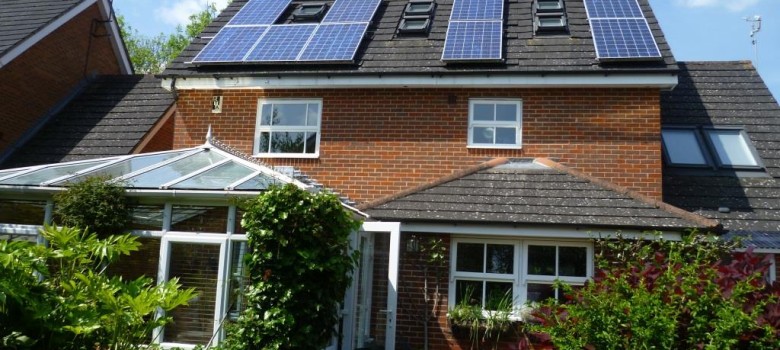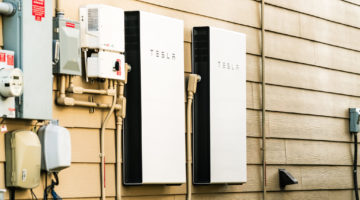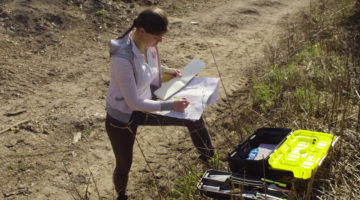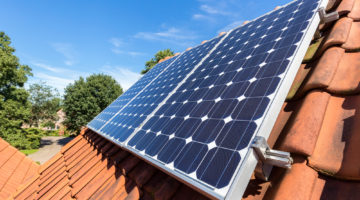
UPDATE: The Feed-In Tariff is now closed for new applications. To find out about the new scheme designed to replace it, click here.
You may be one of the half a million or so Brits that has a solar PV system installed on your home and you are hopefully enjoying lots of free electricity. In many cases, when solar PV is correctly installed, i.e. it is on a southerly or a westerly roof with a bit of an angle and minimal shading, you should be generating quite a decent return – not only because you can use the electricity you produce in the home meaning you don’t need to buy it from the grid, but also because you earn money from the Government’s feed-in tariff (FiT) scheme.
If you hold money with the banks and building societies in this current climate of low interest rates, you may only be earning a measly 1% on your investment, which is not a great return at all. Solar PV on the other hand guarantees you an income from the FiT scheme for 20 years and all these payments are index linked and adjusted for inflation. Coupled with the expected electricity saved an average solar PV system can yield anywhere between 6-8% pa, which is much more favourable than holding money in a banking deposit.
With these kind of returns you might be asking yourself, why doesn’t everyone invest in a system like that?
The issue is that marketing companies and unscrupulous door-to-door salesmen have taken these benefits and exaggerated them to such a point that they are exploiting vulnerable consumers – particularly the elderly and retired. These Solar PV financial scams are all too common.
Customer investigations into solar PV mis-selling
Take for example Mr and Mrs Brown who got in touch with us earlier this year. They are both retired and drawing a modest pension – they got approached by a door-to-door salesman offering great deals on solar panels for their home.
What sized system were they sold?
They were sold a 4kWp mono-crystalline system that was mounted on the only available roof, which unfortunately faces north-east (remember with solar PV the ideal direction is south facing). The situation was made worse given other high storey buildings adjacent in their part of the neighbourhood which meant at certain times of the day the system suffered from shading.
How much were they charged?
They were charged £18,000 in 2013 with the promise that the system would save them 90% of energy cost and add £1,000s onto the value of their retirement home. They couldn’t afford the cost of the system outright, and so had to borrow money from their daughter to help cover these costs, but she thought it was a sensible investment for her parents because they would save long term.
Upon receiving their first energy bill following the install of the solar system, Mrs Brown noticed a problem – her bills went up rather than down.
She told us “We wrongly thought that with the promised energy savings we could run our appliances a bit more. So we ran our tumble dryer a bit more, and we were less worried about leaving lights on and that sort of thing, but it quickly became apparent that our new expensive solar system wasn’t doing anything for us.”
When they phoned the solar PV install company to challenge them on the promises they made, they received a straight arm response from the company who said they “couldn’t offer any guarantees and that customers should always refer to the T&Cs” – basically they wouldn’t accept any responsibility despite the fact that the solar system shouldn’t have been installed there anyway.
When we called the company on behalf of the Browns to challenge them on some of their assertions, the sales team told us someone would get back to us. 6 months on and still no reply…
 This isn’t the only case
This isn’t the only case
We also have had another unhappy gentleman, Mr Rivet who got in touch with us, who also fell for a similar unscrupulous deal, only this time committing himself to a finance deal that he wishes he never got involved with.
Again, a door-to-door solar salesman approached Mr Rivet, who let him in and then over the course of 4 hours the salesman give his full sales pitch explaining all the numbers and the possibilities of the system.
At the end of sales pitch, Mr Rivet informed the salesman that he would consider his offer, however his friendly demeanour quickly turned nasty – he got vocal and aggressive, and instructed Mr Rivet to sign there and then.
“I obviously didn’t sign, but next day I had a phone call from another gentleman from their headquarters basically apologising for all the aggravation and offering me the last offer of 30% off the quoted price I had the previous day.”
So what happened?
Mr Rivet took up a past finance deal, where he paid up the deposit (10%) with the other £14,000 financed using the solar PV company’s finance offer. Like Mr & Mrs Brown he was promised big energy savings and “long-term payback”.
What is slightly worse with Mr Rivet’s situation is that he didn’t realise that the terms & conditions were quite predatory and very unforgiving for someone who missed payment deadlines.
“I don’t have that sort of money to pay up front nor over an 18 month window that the terms & conditions stipulated. Although I have a private pension scheme that is paying me regular income, this is no way enough to pay for such an investment in such a short period of time.”
The APR rates on the finance product were astronomical and it seems that company in question used loan shark funding to fund these installs.
Beware of falling behind on repayments
Although Mr Rivet’s 3.5kWp system is nicely positioned, and last year he generated over 3,200kWhs of free electricity, Mr Rivet became behind on his finance payments – this resulted in threatening letters and bailiffs knocking on his door.
Rivet said: “I was quite lucky in a sense that my daughter is a practicing solicitor and has dealt with cases of company malpractice in the past. After I explained to her what I did and she read over the contract I signed, she wasn’t very happy with the terms within it. She also wasn’t happy that I didn’t consult anyone or read up a bit more on what I was getting myself into.
The case has gone back and forth between the lawyers and we are very confident that the whole product from start to finish was completely mis-sold. At the moment the bailiffs have stopped hassling me and the company in question has gone quiet on the late payments, and I am not sure how the story will conclude, but what I would say it I wouldn’t wish this experience on anyone else.”
Over the past few years we have heard from other households who have fallen for similar hard sales techniques however solar PV genuinely can provide fantastic returns if it is correctly installed and the system has been correctly sized and planned – so below we want to make you aware of a few things before reading through potential quotes or speaking to sales people – so what can you do to try to avoid falling into the same traps as Mr & Mrs Brown and Mr Rivet.
Watch out for Solar PV benefits are being overstated
If you are being told that solar PV will take care of all of your electricity needs, night and day then you need to be really weary. Solar PV systems only work when the sun shines and with the cost of storage systems still very expensive, you can only use the free electricity when it is actually being generated. When the electricity is being generated, it will allow you to run some appliances but not all heavy duty ones.
If you have a 4kWp system, you are typically looking at 2,800 to 3,200kWs of electricity generation per year. An average household uses 4,500kWh, however remember that much of this electricity is used at night – so the electricity produced by your solar PV system is not going to help there.
Solar PV is not right for every house
If your roof is northerly facing or you have a hipped roof with lots of dormers then you may have to just accept that solar PV is not the right technology at this moment in time. There is no point just putting up 1 or 2 panels on the roof for the sake of powering one or two bulbs – you should be looking to at least having a system of 3.5kWp as a minimum installed, to ensure you are going to generate a decent return.
Price is £1,650 per kW for Solar PV
The typical cost for a solar PV system is about £1,650 per kW without taking account the cost of scaffolding. For a decent sized system, say 4kWp (equivalent to 16 panels) would cost you about £7,500.
You may have one or two extra bits added to it, like getting top of the range monocrystalline panels, but this should only increase the price by about 10-20%. If you are receiving quotes in excess of these numbers then you need to be prepared to question the installer or potentially go out there and get yourself additional quotes.
Reputable installation companies – Stope solar PV financial scams
If you are going to get a renewable energy system installed on your home make sure that the company installing it are signed up to the Microgeneration Certification Scheme or MCS. This body registers approved solar PV installations on the national database, and in order to receive the Government Feed-in tariff, your installer must be signed up. Before getting any works started, ask for proof of your installer’s certificates and qualifications.
Whilst a certificate is never an indication of someone’s competence in practice, at least this will put you in some sort of ease about the contractor you are dealing with.
What about Solar PV servicing costs
The panels themselves are quite robust vs the elements, so they will require little or no maintenance. You may want to have them cleaned by a professional solar PV cleaning company every 2-3 years or so.
If your solar PV system comes with one inverter then this will need to be changed every 10 years. This is because inverters wear down with usage – they not only covert electricity current from DC to AC but also act as a regulator for voltage spurs.
If you solar system is installed with micro-inverters then you shouldn’t have any issues, these should last as long as the panel because the voltage going through them is far smaller. Using micro-inverters can also increase the amount of electricity produced by the system because all the solar panels act independently from one another.
Look at other forms of energy saving – insulation
Solar PV systems fitted onto your roof may well provide a decent financial return but potentially the energy saving priorities of the home should be different. For example the property could be a big and draughty solid wall property with poor insulation throughout. Also the property may have a really archaic heating system. In this case the decision should always centre towards investing in insulation.
Uninsulated solid walls account for over 35% of total energy loss and by tackling this area could bring about big savings to overall bills. Loft insulation is cheap and easy and accounts for another 25% of heat loss when dealing with an insulated house or flat.
Speak to friends and family
If you unsure what you being sold then always try and consult the advice of loved ones. Often the deals on offer are just “too good to be true” and so by speaking to someone who has had a similar system installed should give you insight in to the performance of your proposed system, allowing you to make a better informed decision.
You could have family members like Mr Rivet’s daughter that has particular expertise in dealing with organisations such as that – it can only put you in good stead and protect you from making the wrong decision.
Other advice bodies that may help
If you believe you have been mis-sold a product or service then do get in touch with the contractor in the first instance. If this doesn’t work it is in your right to report them to trading standards or in the case of solar PV also the MCS administration scheme.
You can also get in touch with the Citizen’s Advice Bureau, or Age UK.
Think we missed something? Do you have a different opinion?
Comment below to get your voice heard…












No Comments yet! Be the first one.